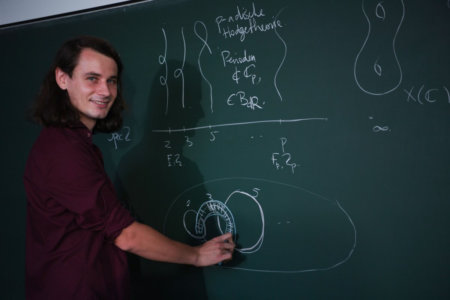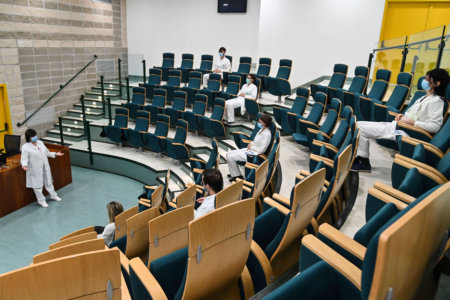
Just about every aspect of our lives is affected or transformed by artificial intelligence (AI). Alexa and Siri — virtual assistants by Amazon and Apple respectively — can help us to make calls, send texts, and find real-time information while on the go. Elon Musk’s Tesla draws on AI for its uber-cool cars in the electric vehicle market.
Netflix uses AI to make movie recommendations to its viewers; Spotify’s Discover Weekly playlist personalises playlists for its users each week. The use of AI is pervasive in our modern lives, and we owe it, in part, to John McCarthy, an American computer scientist who pioneered the field of AI.
The Father of AI
On this day in 1959, Caltech alumnus John McCarthy first presented the mathematically sophisticated Lisp programming language, which remains an important tool for computer science and artificial intelligence research: https://t.co/Gk1qzJtZ86 pic.twitter.com/Yw3keeM8hw
— Caltech Archives and Special Collections (@CaltechArchives) April 16, 2020
According to Britannica, McCarthy coined the term AI in 1955; in 1958, he created the computer programming language LISP, which was initially used primarily by the AI community owing to its great flexibility due to its expressive power. LISP’s use declined in the 1990s but renewed in the 21st century, especially in the open-source community. McCarthy was also involved with developing Elephant 2000, a programming language with semantic features based on speech acts.
Thanks to his work, McCarthy enjoyed a string of prestigious awards and prizes, including the ACM Turing Award in 1971, the Kyoto Prize in 1988, the National Medal of Science in 1990, and the Benjamin Franklin Medal in 2003. He passed away in 2011 at the age of 84. Despite all his achievements, what did this gifted scientist study?
An undergraduate degree in mathematics

The use of AI can give companies an advantage and we owe it, in part, to the Father of AI. Source: Justin Sullivan/Getty Images North America/Getty Images
McCarthy graduated with a BS in mathematics from Caltech in 1948. Caltech notes its mathematics major is “designed to give students an understanding of the broad outlines of modern mathematics, to introduce current research and to prepare them for advanced work in pure mathematics or related fields.”
Students study the structures of algebra, analysis and geometry, as well as the rudiments of combinatorics and set theory. They learn to write coherent and complete proofs of various assertions, to work out non-trivial examples and to use computational tools. A bachelor’s in mathematics can pave the way for careers across a wide range of fields, thanks to its wide applications. This includes the fields of physics, computer science, statistics, economics, business, finance, medicine and law.
Some universities may combine mathematics with another area of study, such as the University of Nottingham, which offers a BSc (Hons) in Mathematics and Management.
Doctorate studies
McCarthy received a PhD in mathematics from Princeton University. Princeton notes that the programme “is unique from the other top mathematics institutions in the US in that it emphasises, from the start, independent research.”
“Our programme has minimal requirements and maximal research and educational opportunities. We offer a broad variety of advanced research topics courses as well as more introductory level courses in algebra, analysis, and geometry, which help first-year students strengthen their mathematical background and get involved with faculty through basic course work,” it said.
“First-year students are set on the fast track of research by choosing two advanced topics of research, beyond having a strong knowledge of three more general subjects: algebra, and real and complex analysis, as part of the required General Examination.”
Students are expected to write a thesis in four years but will be provided an additional year to complete their work if deemed necessary. Graduates can apply for academic positions at mathematical institutions upon graduating.









